Publications:
Historically, scientists valued using the recognition of pareidolia images to further their research. Present explorations center on responses generated when using this instinct for therapeutic, artistic, medical and nature applications.
Current information on pareidolia include: Pat Bernstein's book, medical journals, and university publications.
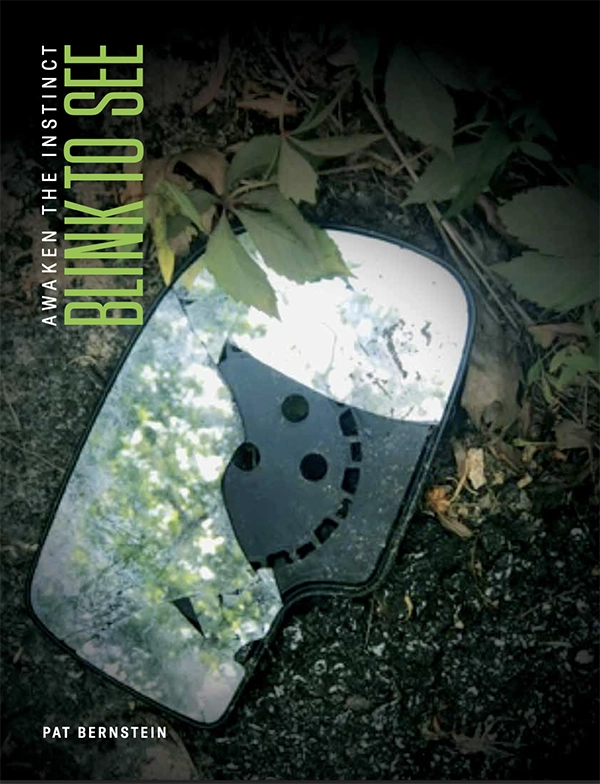
Winter 2019 Blink To See
Discover Nature's Hidden Secrets
The coffee-table book Blink to See introduces steps for experiencing pareidolia, gives associated activities, and challenges readers with dozens of photographs. Blink-to-See
$25 ($20 plus $5 shipping fee)
To place an order use Venmo @pat-bernstein
Email name and mailing address to Bernpat123@gmail.com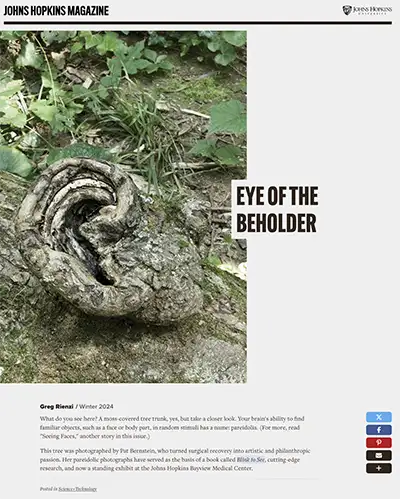
Johns Hopkins Magazine / Winter 2024 Eye of the Beholder
What do you see here? A moss-covered tree trunk, yes, but take a closer look.
Your brain's ability to find familiar objects, such as a face or body part, in random stimuli has a name: pareidolia. (For more, read "Seeing Faces," another story in this issue.)
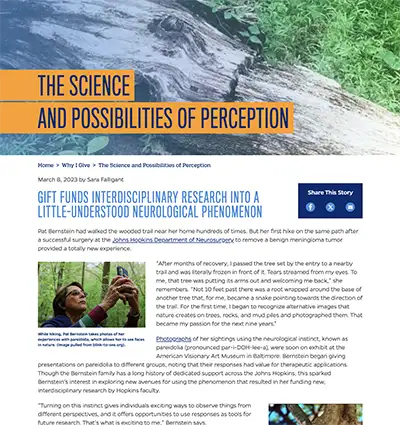
Johns Hopkins University & Magazine / Spring 2023 The Science and Possibilities of Perception
Gift funds interdisciplinary research into a little-understood neurological phenomenon.
Pat Bernstein had walked the wooded trail near her home hundreds of times. But her first hike on the same path after a successful surgery at the Johns Hopkins Department of Neurosurgery to remove a benign meningioma tumor provided a totally new experience.
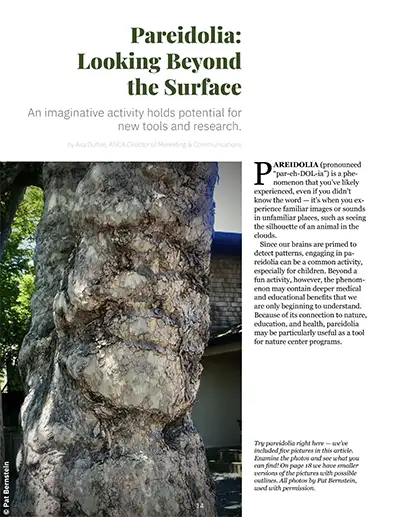
ANCA / Winter 2022 Pareidolia: Looking Beyond the Surface
An imaginative activity holds potential for new tools and research.
The article published by ANCA, the national organization of nature centers, introduced pareidolia and Pat Bernstein's awareness following surgery.
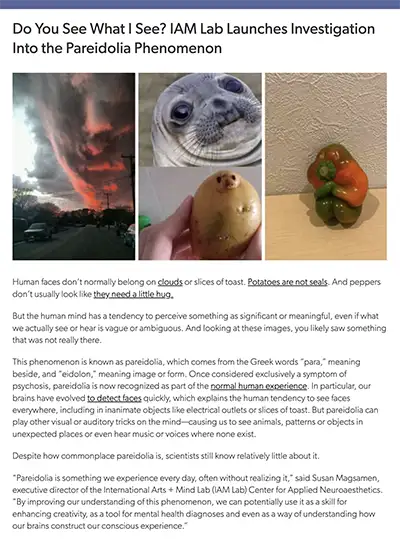
IAM Lab / Summer 2022 Do You See What I See?
IAM Lab Launches Investigation Into the Pareidolia Phenomenon
Johns Hopkins International Arts and Mind Lab and the Zanvyl Krieger Mind/Brain Institute is conducting long-term research on pareidolia. Link